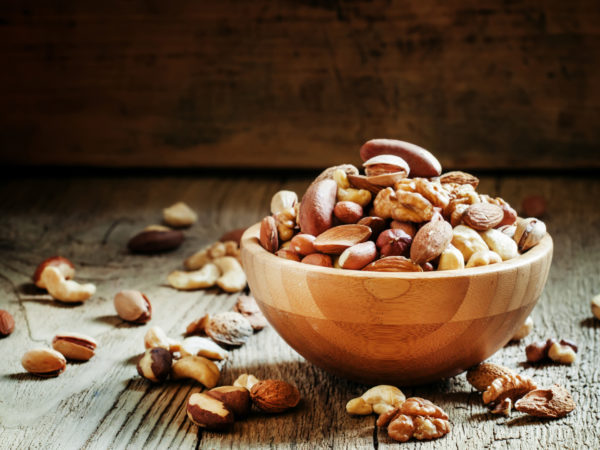Getting Enough Nickel?
Do humans need nickel in the diet?
Andrew Weil, M.D. | June 7, 2010

Yes, but not much. We have a trace requirement for nickel, but we’re not sure exactly why we need this mineral or the optimal amount we should be getting. Animal studies suggest that nickel may play a role in the body’s use of folic acid and vitamin B12, which are both necessary to help maintain desirable levels of homocysteine, a toxic amino acid that is associated with an increased risk of heart disease and stroke. Other animal research has shown that nickel concentration influences the production of certain hormones, including adrenaline and noradrenaline, as well as prolactin (which stimulates production of breast milk), and aldosterone (which helps maintain blood pressure by regulating salt and water balance). Nickel deficiencies have also been associated (again, in animal studies) with poor iron absorption and altered metabolism of calcium.
However, our need for nickel is apparently low. According to the U.S. Department of Agriculture’s Agricultural Research Service humans may need only 25 to 35 micrograms of nickel per day. Foods that supply this micronutrient include chocolate, nuts, dried peas and beans, and grains. I know of no need to take supplemental nickel. In significant doses, nickel is toxic.
The only other issue to bear in mind is nickel allergy, which can lead to a rare type of eczema called pompholyx. This is an intensely itchy condition also characterized by fluid filled blisters that form on the fingers, palms and the soles of the feet. The reaction can occur after eating foods containing nickel, cobalt or chromium salts. If you’re affected, try to avoid nickel salts by eliminating canned foods, foods cooked in nickel-plated utensils (including stainless steel, which contains nickel) as well as herring, oysters, asparagus, beans, mushrooms, onions, corn, spinach, tomatoes, peas, whole grain flour, pears, rhubarb, tea, cocoa, chocolate, and baking powder.
Andrew Weil, M.D.









